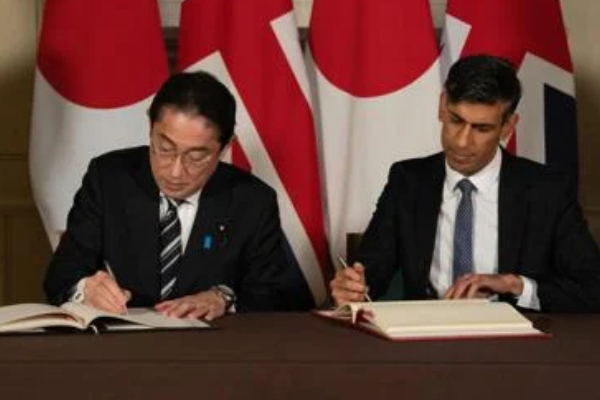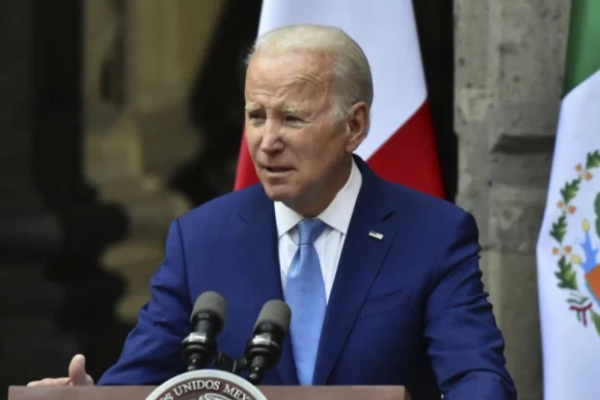U.K. Prime Minister Rishi Sunak has signed a major defense agreement with his Japanese counterpart, Fumio Kishida.
The pact , the most significant deal of its type between the two countries in more than a century allows planning and delivery of larger, more complex military exercises, according to a U.K. government statement.
The United Kingdom and Japan will allow military forces to be deployed to one another’s territory, as Tokyo expands bilateral cooperation with other U.S. allies amid concerns about China’s rise.

Japan’s foreign ministry said, “Signing this important security agreement takes Japan-U.K. cooperation in security and defense to new heights,” in a statement following the signing. “It will also bring further progress toward making a free and open Indo-Pacific a reality.”
The U.K. becomes the first European country to have such an agreement with Japan, which has a similar deal with Australia. Japan’s Cabinet recently approved the country’s biggest increase in defense spending since the end of World War II in 1945, updating its national security policy and describing China as an unprecedented “strategic challenge.”
The shift by Japan, which has been constitutionally pacifist since the aftermath of the war, has been accelerated by Russia’s invasion of Ukraine, as well as growing tensions over Taiwan. China has accused the U.S. and its allies of increasing the risk of conflict by attempting to knit together an Asian version of the North Atlantic Treaty Organization.
Chinese Foreign Ministry spokesman Wang Wenbin said Wednesday at a regular press briefing in Beijing that the pact “should not target any imaginary enemies, still less replicate the outdated mindset of bloc confrontation in Asia-Pacific.”
“China is a partner for cooperation for all countries, not a challenge,” he said.
The Reciprocal Access Agreement with Japan also help deepen U.K. ties in Asia-Pacific. Sunak’s government is in the process of updating its approach to security, defense and foreign policy, which was last revised in 2021, with a tilt toward the region.
The agreement “is hugely significant for both our nations — it cements our commitment to the Indo-Pacific and underlines our joint efforts to bolster economic security, accelerate our defense cooperation and drive innovation that creates highly skilled jobs,” Sunak said in the statement.
It comes weeks after Britain and Italy agreed to merge plans for a next-generation warplane with a parallel project in Japan, in a bid to bring a new fighter into service by 2035.





